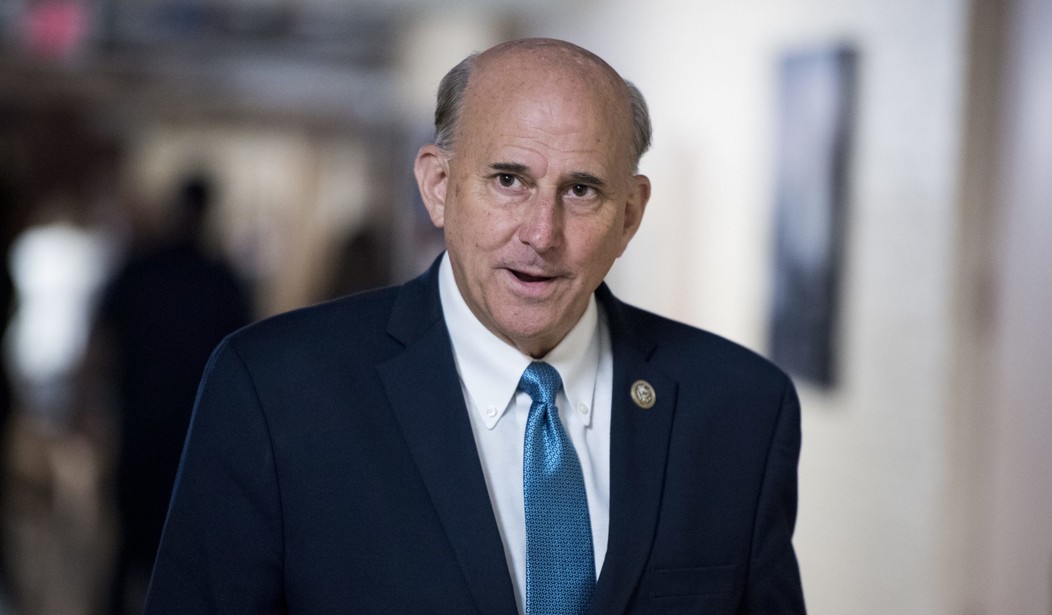In the wee hours of Saturday morning, the House of Representatives passed H.R. 6201, the Families First Coronavirus Response Act. Despite President Donald Trump announcing his support for it last night, 40 Republicans voted against the bill. Liberals on Twitter naturally excoriated them, but they had good reasons to oppose it.
“40 Republicans decided in the middle of a national emergency and pandemic, nah, let’s not do anything,” Susan J. Demas, editor-in-chief at Michigan Advance, tweeted.
40 Republicans decided in the middle of a national emergency and pandemic, nah, let's not do anything. https://t.co/xuJ3WknJvA
— Susan J. Demas 🏔 (@sjdemas) March 14, 2020
Liberal commentator Bill Palmer tweeted, “40 Republicans in the House just voted against emergency coronavirus relief. For their next trick they’re going to vote against Santa Claus.”
40 Republicans in the House just voted against emergency coronavirus relief. For their next trick they're going to vote against Santa Claus.
— Palmer Report (@PalmerReport) March 14, 2020
Yet contrary to the liberal attacks that led “40 Republicans” to trend on Twitter this morning, the Republicans who decided to buck Trump and vote against the bill are not heartless. Almost all of them actually voted for an $8.3 billion coronavirus spending bill just last week.
The Santa Claus line may have been more apt than Palmer realized. Indeed, House Speaker Nancy Pelosi appears to have approached this recent coronavirus spending bill as a liberal Santa Claus measure. She reportedly tried to sneak abortion funding into the coronavirus bill, along with a whole host of long-lasting reforms that will make it harder for businesses to function.
As Reason‘s Billy Binion explained, the “Families First” bill would cost tens of billions of dollars. In addition to providing full government funding for coronavirus testing, the bill would “mandate private businesses provide additional paid sick leave; expand unemployment insurance eligibility; strengthen food security initiatives for senior citizens, children, pregnant women, and food banks; increase funding for Medicaid; and bolster unemployment benefits, among other provisions.”
Binion zeroed in on one specific aspect of the bill: a permanent government-mandated paid sick leave program with some rather odd inclusions.
“Should the bill pass, businesses would be federally required to provide seven days of paid sick leave—with or without a pandemic. This provision has little relevance to addressing coronavirus and much more to do with leveraging the crisis to prop up policies popular within the Democratic Party,” he wrote. “That couldn’t be more clear in the legislation’s stalking component. The text specifies that, should someone need to miss work due to an instance pertaining to stalking, domestic violence, or sexual assault, or should an employee need to help a friend going through such an event, a private business would be federally required to provide paid sick leave.”
The House reportedly removed the permanent provisions before the passage of the bill, and Pelosi worked with Treasury Secretary Steve Mnuchin on the bill. However, it remains possible that other provisions were smuggled in under the radar. The rushed process also does not speak well to the transparency of the legislation.
The Republicans who voted against the measure warned about similar Democratic wishlist items.
“Nancy Pelosi squandered days trying to push wishlist items on us rather than engaging in a meaningful bipartisan discussion,” Rep. Ken Buck (R-Colo.) explained on Twitter. “This bill is a 110-page, multi-billion dollar boondoggle shoved on us at the stroke of midnight.”
Nancy Pelosi squandered days trying to push wishlist items on us rather than engaging in a meaningful bipartisan discussion. This bill is a 110-page, multi-billion dollar boondoggle shoved on us at the stroke of midnight.
— Congressman Ken Buck (@RepKenBuck) March 14, 2020
Buck voted against the $8.3 billion stimulus package last week, but Rep. Louie Gohmert (R-Texas) voted for that stimulus and against the bill on Saturday morning.
Gohmert slammed the shady procedure involved in passing the bill.
“I got a bill around about 9 o’clock or so, I was told it was the most recent draft. I got through it in time to have a number of questions,” but then the vote was rushed, he said. “I get a copy of the bill we were gonna vote on and get it right before the buzzer goes off.”
“This is no way to handle something so important,” Gohmert rightly insisted. “Questions I couldn’t get answered are going to put people out of business. This is no way to handle billions and billions of dollars when we are trying to help people; and, we don’t even know whether we will help them or hurt them.”
“This is no way to handle billions and billions of dollars when we are trying to help people; and, we don’t even know whether we will help them or hurt them.” #CoronaVirusResponseActhttps://t.co/jHFMA2qw6M
— Louie Gohmert (@replouiegohmert) March 14, 2020
Rep. Jim Banks (R-Ind.) also opposed the package due to this process and the unnecessary stipulations.
“On the heels of a massive $8.3 billion emergency spending package, Speaker Pelosi rushed a second short-sighted emergency bill, passed in the middle of the night and behind closed doors, that does more harm than good,” Banks said in a statement.
“While there are some good things in the bill, we don’t know the final price tag. Some language will mean major harm for small businesses and our economy. Moreover, it greases the skids for massive bailout packages for industries forced to implement these costly policies. Our national debt is nearing $23.5 trillion–our children’s generation can’t afford it,” he added. “Congress should have stuck with writing a narrow bill that ensures testing availability and support for American families directly affected by COVID-19. Instead, it chose to radically expand the welfare state and set the scene for future spending.”
President Trump likely supported the measure because he wants to have all hands on deck against the coronavirus. His partnership with the private sector suggests a positive aggressive approach to the coronavirus, but supporting this bill may have been a misstep for the president. These Republicans are sending the president an important message — that he should reconsider. Senate Majority Leader Mitch McConnell may also change the bill next week, alerted to these weaknesses by the 40 Republican votes against it.
Tyler O’Neil is the author of Making Hate Pay: The Corruption of the Southern Poverty Law Center. Follow him on Twitter at @Tyler2ONeil.









Join the conversation as a VIP Member